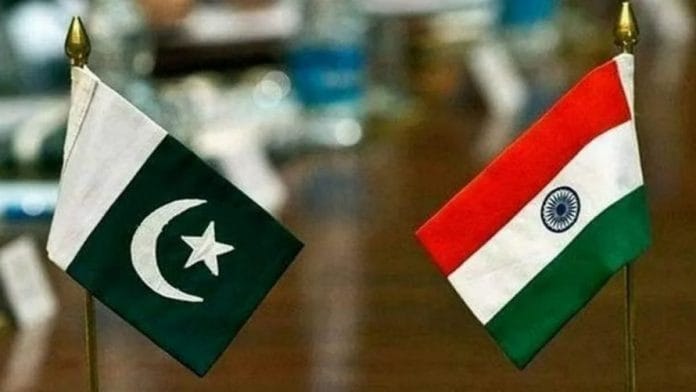New Delhi: India has formally served Pakistan a notice seeking review and modification of the Indus Water Treaty (IWT), the second in the last 20 months regarding the agreement signed in 1960.
The provisions of the Indus Water Treaty may from time to time be modified by a duly ratified agreement, which is agreed to by both governments, under Article XII(3) of the IWT.
According to government sources, the notice sent by New Delhi under Article XII(3) of the IWT, highlights the fundamental and unforeseen changes in circumstances that require a reassessment of obligations under various articles of the Indus Water Treaty—namely India’s need to accelerate the development of clean energy to meet its emission reduction targets, environmental issues, change in population demographics, and the impact of persistent cross border terrorism.
The notification was issued in the background of separate issues over two hydro-power projects—Kishanganga and Ratle. The World Bank, which is a signatory to the pact, has simultaneously activated both the neutral expert mechanism and the Court of Arbitration to resolve the dispute arising from the two issues.
“The Indian side has, therefore, also called for reconsideration of the dispute resolution mechanism under the Treaty,” said a government source. New Delhi has called Islamabad to begin government-to-government negotiations of the treaty through this formal notice.
In September 1960, the Indus Waters Treaty was signed in Karachi by Prime Minister Jawaharlal Nehru and Ayub Khan, the President of Pakistan. Under the provisions of the treaty, the Eastern rivers—the Sutlej, the Beas and the Ravi—are available for unrestricted use by India, while the Western rivers—the Indus, the Jhelum and the Chenab—are available for unrestricted use by Pakistan.
In January 2023, India had sent a formal notice to Pakistan to review and modify the Indus Water Treaty but there was no clear response from Islamabad. As reported by ThePrint earlier, since 2015, Pakistan has repeatedly raised objections over two of India’s hydro-power projects in Jammu and Kashmir—Kishanganga and Ratle.
While Islamabad made calls for a Court of Arbitration to resolve the dispute, India had instead called for a resolution via a neutral expert as the best way to resolve the pending dispute.
In April 2022, the World Bank decided to resume both dispute resolution processes requested by New Delhi and Islamabad. These parallel processes were opposed by India.
The Kishanganga hydroelectric project inaugurated in 2018 by Prime Minister Narendra Modi also consists of a dam constructed on a tributary of the Jhelum, which is regarded as a Western river under the Indus Water Treaty.
(Edited by Tony Rai)
Also Read: India shouldn’t stop at Shahpurkandi dam. Scrap Indus Water Treaty with Pakistan altogether






